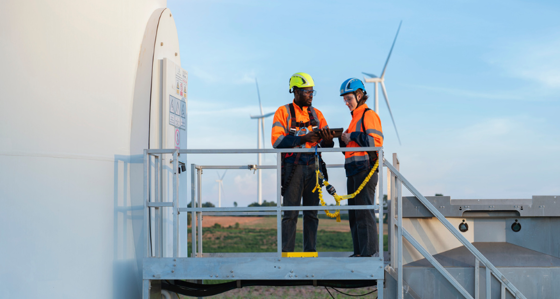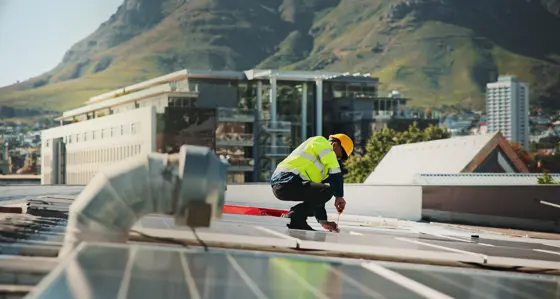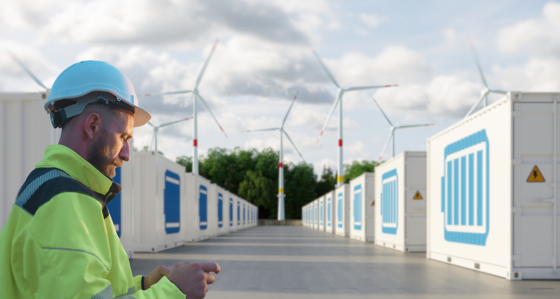
Driving economic growth by securing a cleaner and resilient future for the North Sea
5 min read 1 April 2025
An offshore energy powerhouse
The North Sea is at the heart of the UK’s energy system. In 2024 alone, it added more than £25bn to the UK economy . It supports more than 200,000 skilled jobs across the UK, including 90,000 in Scotland . Plus, its vast oil and gas reserves provide energy security.
With the right strategy, the North Sea can continue to play a pivotal role in the energy system as the world shifts to net zero, while positioning the UK as a resilient, innovative and competitive player in the global energy landscape. Our new report, published in conjunction with Offshore Energies UK (OEUK), outlines how to achieve all this and more.
Delivering low-cost, high-value energy for consumers and businesses in the UK and beyond
Our report sets out a bold, achievable vision for the future of the North Sea. It focuses on delivering low-cost, high-value energy, which is defined as being:
- affordable for UK consumers and businesses
- competitively priced, compared to other countries
- resilient through robust physical security, cybersecurity and price security
- flexible – responding to fluctuating demand and variable renewable power output
- low-carbon and sustainable.
Our vision is underpinned by a plan to repurpose the North Sea’s end-of-life infrastructure, while leveraging decades of expertise, supply chains and talent from the oil and gas sector – adapting them to support a decarbonised energy system. This new energy landscape encompasses decarbonised oil and gas, renewables, carbon capture and storage (CCS), and hydrogen production, with the potential to expand to new technologies such as floating offshore wind farms and long-duration energy storage (LDES) as they become economically viable.
Creating an Offshore Energy Mission Control
Alongside the implementation of Clean Power 2030, other technologies such as energy storage and CCS will play an instrumental role in decarbonising the entire energy landscape as the UK will continue to rely on non-electrified energy sources for transportation and industrial processes. We propose establishing an Offshore Energy Mission Control that connects the various stakeholders, policies, plans, and regulations applying to the offshore sector. This Mission Control should have the power to cut through processes and connect different stakeholders, from government bodies, to oil and gas operators, renewables developers and financial institutions, in order to:
- Develop an integrated delivery strategy that ensures strategic allocation of government funding to:
- Accelerate the commercialisation of new technologies
- Build routes to market for renewable energy, hydrogen and CCS by creating an attractive investment environment and working with financial institutions to dismantle barriers to private investment
- Oversee on- and offshore infrastructure for the energy transition
- Streamline processes and strengthen collaboration between the various administrations, industry bodies, and regulators involved in planning, issuing permits, and granting licences to accelerate decision-making and facilitate efficient infrastructure deployment
- Coordinate with Europe to:
- Enable increased cross-border electricity trading and hydrogen transport
- Establish a larger, unified carbon market with mutual recognition of EU and UK emissions trading schemes and a well-implemented carbon border adjustment mechanism to prevent carbon leakage and support the UK’s CCS services to other countries by incentivising international CO2 imports.
A once-in-a-generation opportunity
We are at a critical juncture that will determine the future of the North Sea. It presents a huge opportunity for the UK to become a leader in the new, decarbonised energy landscape, while providing affordable, clean energy for consumers and businesses at home and abroad. Our vision outlines how the UK can capitalise on this potential, while keeping valuable taxpayer revenues, jobs and energy security here for decades to come.
Our Experts


Related Insights

Money still backs batteries in Great Britain
Read this article for an exploration of why GB remains an attractive battery storage market – not just on a spreadsheet, but in substance, for those looking to build, acquire, or finance BESS.
Read more
REMA Unveiled: dissecting the Government’s decision in favour of Reformed National Pricing
Explore the Government’s REMA decision favouring reformed national pricing and its impact on investment signals, grid planning and market efficiency.
Read more
Insights from Baringa’s South Africa Wholesale Electricity Market Report
As South Africa's energy market takes its first steps towards liberalisation, development and investment potential abounds. However, significant barriers remain on the journey to a reliable, competitive, and decarbonised energy system. We explore the risks and opportunities in this rapidly evolving landscape.
Read more
Europe's Battery Profitability
Select the right market, battery duration, and get the timing right. Drawing on our extensive Flexibility Market Report coverage across 19 European markets, we compare IRRs.
Read moreIs digital and AI delivering what your business needs?
Digital and AI can solve your toughest challenges and elevate your business performance. But success isn’t always straightforward. Where can you unlock opportunity? And what does it take to set the foundation for lasting success?